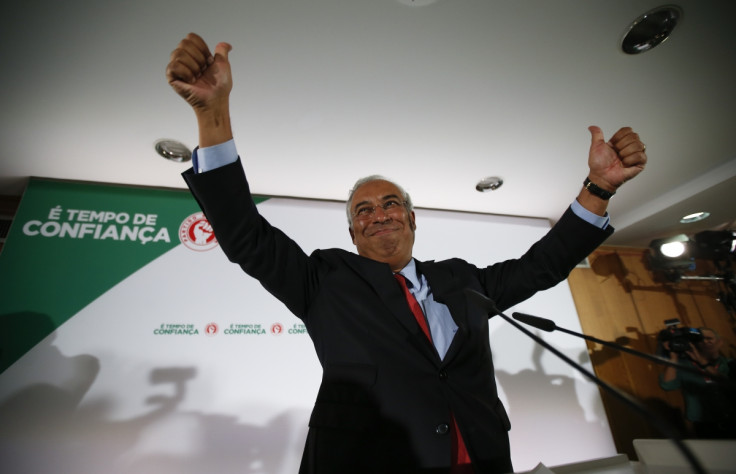Euro zone: Is Portugal's new socialist coalition the new Syriza?

António Costa, leader of the centre-left Socialists (PS), has caught Europe's elite by surprise after forming a triple-coalition government ideologically aligned to Greece's anti-austerity Syriza party and Spain's Podemos.
Costa won the 4 October elections on a strong anti-austerity ticket after mounting a successful challenge for the leadership of the country's Conservative opposition party.
While his victory did not give Costa an outright majority in Parliament (32% or 85 seats), forming a triple alliance with the Communists (PCP) – with whom his party had a historic feud – and another leftist party, Left Bloc (BE), has.
'Turning the page on austerity'
During his electoral campaign, 54-year-old Costa had vowed to resist the austerity demands from EU creditors. His pledge – ending four years of a painful austerity program put in place by former prime minister and leader of the conservative (PàF) coalition, Pedro Passos Coelho – has rattled politicians and financiers alike.
Following Portugal three-year, €78bn ($88bn) international bailout, Coelho's government curtailed unemployment rates by 5%, and the economy has surged by 1.5% in the first half of 2015. This means the country recorded five quarters of uninterrupted growth in June for the first time since the 1990s.
But while data coming out of Portugal seems to show it is exiting a three-year deep recession, the improvement has been at the expense of the people, whose vote reflected a desire for change, Costa said.
His proposals to "turn the page on austerity" include rolling back cuts for public workers, reviewing the privatisation of public transport and the water infrastructure and rising spending on health care and education.
These would in effect reverse the cuts ordered by the EU-IMF "Troika", which EU Fiscal Compact requires Portugal to cut its public debt from 127% to 60% of GDP over twenty years, under the threat of sanctions.

End the euro and bring back nationalisation
While the new trio said it wants to return to the escudo – Portugal's currency prior to the introduction of the euro on 1 January 1999 – Communist leader Jeronimo de Sousa has gone further in his proposals.
He has called for a "dissolution of monetary union", which he claims has damaged the productive base of the European economy, and a 50% write-off of the country's public debt.
As well as nationalising the banks, De Souza also wants to wipe out the EU's Fiscal Compact, and EU's 2007 Lisbon Treaty, which form the constitutional basis of the union.
The leader of the Left Bloc, Catarina Martins, although more subtly, has also pointed to an exit from the euro zone, describing how the Portuguese would have to choose between "dignity and the euro".
These policies are bound to provoke a head-on collision with creditors and political enforcers, the ECB. This could have dramatic consequences for Portugal, as the ECB has not hesitated to quell rebel nations – such as Greece – in the past by killing off their banking systems.
If the country wants to remain in the euro, meanwhile, Europe's elite also say Portugal will have to maintain a primary surplus that does not make growth possible.
Markets are holding their breath, while large banks such as Rabobank already sharing their "reluctance" to buy Portuguese debt.
© Copyright IBTimes 2025. All rights reserved.





















